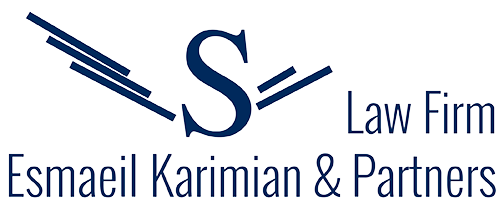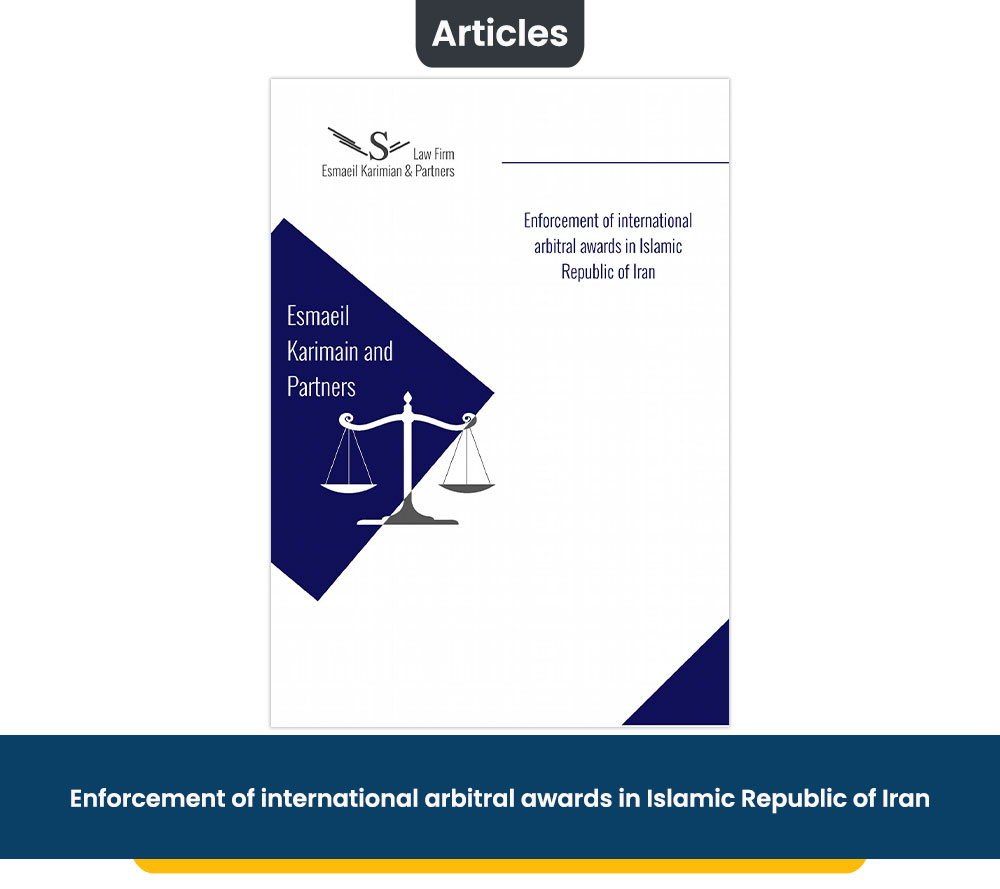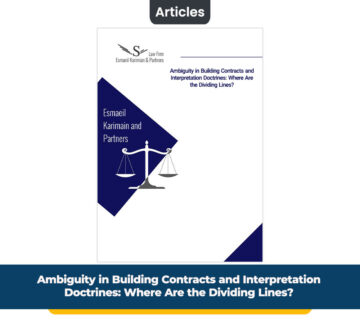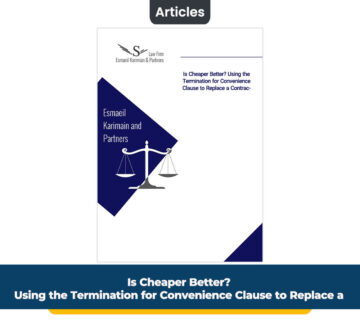In this article you will read:
Enforcement of international arbitral awards in Islamic Republic of Iran
Introduction
Arbitration is a kind of private adjudication by which parties to a commercial contract can resolve their disputes outside of any judicial system.
One of the main reasons of incorporating an arbitration clause in an international agreement is that parties can be certain about enforceability of the arbitral award. Many countries have adopted international conventions that are pro-enforcement, that is, they provide only narrow grounds for refusing to enforce.
In this article, we will first talk about arbitration in Iran and after that, we will discuss enforcement of arbitral awards in Iran.
International Arbitration in Iran:
A legislation regarding international arbitration passed in Iran’s Parliament in 1977 under the title of “International Commercial Arbitration Act (ICAA)” which has been inspired by UNCITRAL Model Law.
According to article 1 of this act, ICAA will apply:
- When one of the parties to the contract at the time of concluding arbitration agreement is not Iranian.
- When a dispute is commercial (whether contractual or not).
Recognition and Enforcement of Arbitral Awards in Iran:
Islamic Republic of Iran jointed to the Convention on Recognition and Enforcement of Foreign Arbitral Awards 1958 (New York Convention) by ratifying it in 18/04/2001. Therefore New York convention will apply to Arbitration awards.
Contracting States are allowed to make two reservations as to the scope of applicability of the Convention. The first limitation is one of reciprocity: a Contracting State can provide that it will only apply the Convention to awards that are issued in the territory of another Contracting State. This reservation has been adopted by more than half of Contracting States.
The second permitted reservation is that a Contracting State may “declare that it will apply the Convention only to disputes arising out of legal relationships, whether contractual or not, which are considered as commercial”.
It should be noted that Islamic Republic of Iran used these reservation rights in accordance with article 1(3) of New York Convention.
According to “Act of Islamic Republic of Iran’s Accession to the Convention on Recognition and Enforcement of Arbitral Awards in New York”:
- Iran will apply this convention only to the commercial disputes whether contractual or non-contractual.
- Iran will apply this convention only to the awards that is issued in another contracting state.
Internal awards in Iran legal system can be defined as an award that has been granted in territory of Iran and in accordance with International Commercial Arbitration Act. On the other hand when an award has been issued outside of territory of Iran, whether in accordance with International Commercial Arbitration Act or not, it is a foreign award.
International Arbitral Awards outside of New York Convention:
Chapter 8 of International Commercial Arbitration Act, is about enforcement of the awards:
“Article 35: Enforcement.
- Excluding the cases mentioned in Articles (33) and (34), the arbitration award issued in accordance with the regulations of this Law shall be final and binding after notification. In case of “written application” from the court mentioned in Article (6), the arrangements for enforcement of court verdicts shall be executed.
- In case one of the parties demands the cancellation of the award from the court mentioned in Article (6) of this Law and the other party demands its recognition or enforcement, the court shall prescribe that the party demanding nullification to deposit an appropriate guarantee provided that the party demanding recognition or enforcement of the judgment requests so.”
A difficulty arises when an international arbitral award is neither enforceable under provisions of New York Convention nor ICAA. For example when an award is issued in a non-contracting states and it’s also not enforceable based on ICAA. In such cases, there are three theories that can be used by a competent court:
- Analogize a foreign arbitral award to a foreign court decision.
- Analogize a foreign arbitral award to a foreign enforceable documents.
- Analogize a foreign arbitral award to a domestic arbitral award whether a national award (according to Civil Procedure Code of Iran) or an international award (according to ICAA).
Required Procedures for Enforcement
The only specific requirement imposed by the Convention is that the party applying for recognition and enforcement must provide the court with authenticated original award or a certified copy, and original arbitration agreement or a certified copy. In addition, if the award or the agreement is not in the same language used in the enforcing jurisdiction, the party must provide a certified translation of the documents.
Defenses to Enforcement (ground for non-enforcement)
Grounds of challenging an international award in Iran are the same as grounds stated in Article 5 of the Convention. Reasons of challenging an arbitration award based on Article 5(1) are as follows:
- Incapacity and invalidity.
- Lack of notice of the appointment of the arbitrator and of the arbitral proceedings or fairness.
- Arbitrator acted in excess of his/her authority.
- The tribunal or procedure was not in accord with the parties’ agreement.
- The award is not yet binding or has been set aside.
Above-mentioned grounds will be applied when the losing party protests against the award
In brief, Article 5(2) defenses include:
- Lack of arbitrability.
- Violation of public policy.
These two additional defenses can be raised by the court itself.
Another restriction that exists in Iran legal system is article 139 of Constitutional Code of Iran.
According to “act of Islamic Republic of Iran’s Accession to the New York Convention on Recognition and Enforcement of Arbitral Awards “This convention will be applied without prejudice to article 139 of Constitutional Code of Iran.”
Article 139 states: “the settlement, of claims relating to public and state property or the referral thereof to arbitration is in every case dependent on the approval of the Council of Ministers, and the Assembly must be informed of these matters. In cases where one party to the dispute is a foreigner, as well as in important cases that are purely domestic, the approval of the Assembly must also be obtained. Law will specify the important cases intended here.”
This article states one of the controversial principles in the Constitution of Iran. Some scholars believe that this principle does not apply to States Companies so bringing a case before an arbitral tribunal by such companies is not in contract with that provision.
Conclusion:
There are different kinds of international arbitral awards. Some of them are enforceable under New York Convention, and since Islamic Republic of Iran has ratified the Convention, they can be enforced in Iran provided that they have been granted in a contracting state and in relation to commercial disputes.
Some other awards are enforceable under “Iran’s International Commercial Arbitration Act”.
Other international arbitral awards that are not covered by NYC or ICAA can also be recognized and enforced by courts according to theories presented by well-known scholers.
About ESK Law Firm
ESK Law Firm is one of Iranian leading law firms, with a reputation for standing out – and for being outstanding. We provide legal services in areas such as international trade law; international investment law; banking and finance law; energy law; company law, litigation as well as conduct due diligence for entities, represent clients for negotiating, and designing and drafting various kinds of international contracts. Our clients include multinational corporations, businesses, entrepreneurs, financial institutions and governments who seek advice in respect to their domestic and international affairs, including cross-border transactions and inward and outward investment activities.
ESK Law Firm’s partners, with more than a decade experience in the legal services, provide professional services of substantial value to anyone who is presently managing, or considering development of local and international business operations. They offer the sharpest legal minds, the clearest advice, And an unshakable sense of what’s possible.





No comment